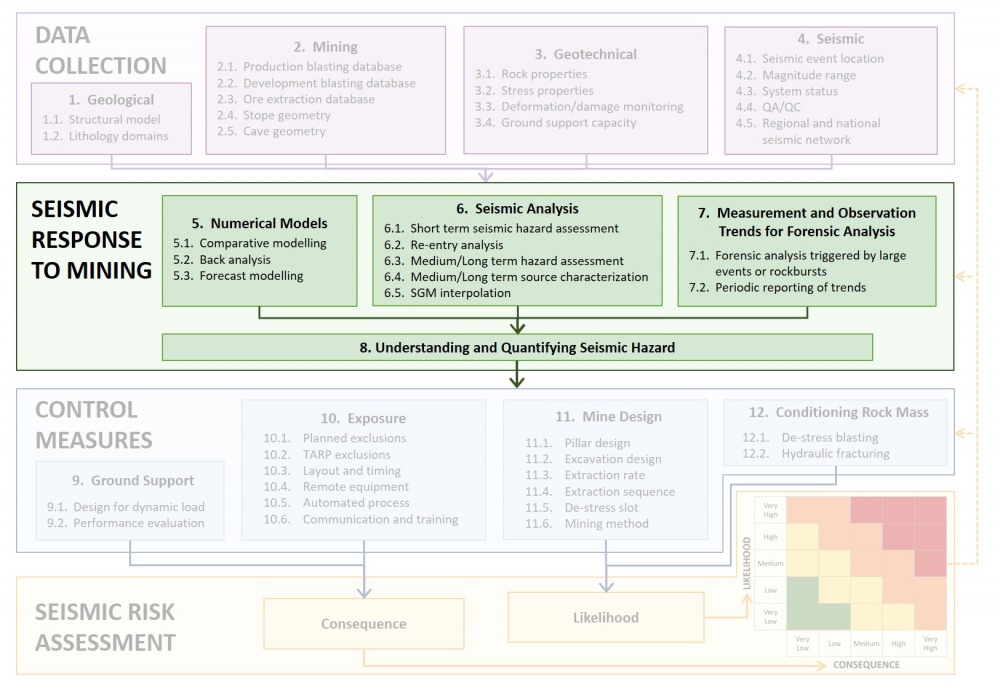Seismic Response to Mining: Difference between revisions
No edit summary |
No edit summary |
||
| Line 1: | Line 1: | ||
The green area of activities in the flowchart entitled “seismic response to mining” is where the seismic sources in the mine are identified, understood and the seismic hazard is quantified, before control measures are applied to reduce the seismic risk to a tolerable level. The main tools to investigate the seismic response to mining are numerical models, seismological models and case studies of historical seismic response to mining. | The green area of activities in the flowchart entitled “seismic response to mining” is where the seismic sources in the mine are identified, understood and the seismic hazard is quantified, before control measures are applied to reduce the seismic risk to a tolerable level. The main tools to investigate the seismic response to mining are numerical models, seismological models and case studies of historical seismic response to mining. | ||
{| class="wikitable" style="margin: auto;" | {| class="wikitable" style="margin: auto;" | ||
| Line 7: | Line 8: | ||
|[[8. Understanding and Quantifying Seismic Hazard]] | |[[8. Understanding and Quantifying Seismic Hazard]] | ||
|} | |} | ||
<imagemap>Image:2.00_Seismic_Response_to_Mining.jpg|1000px|center | <imagemap>Image:2.00_Seismic_Response_to_Mining.jpg|1000px|center | ||
Revision as of 11:20, 9 August 2018
The green area of activities in the flowchart entitled “seismic response to mining” is where the seismic sources in the mine are identified, understood and the seismic hazard is quantified, before control measures are applied to reduce the seismic risk to a tolerable level. The main tools to investigate the seismic response to mining are numerical models, seismological models and case studies of historical seismic response to mining.
| 5. Numerical models | 6. Seismic analysis | 7. Measurement and observation trends for forensic analysis | 8. Understanding and Quantifying Seismic Hazard |


